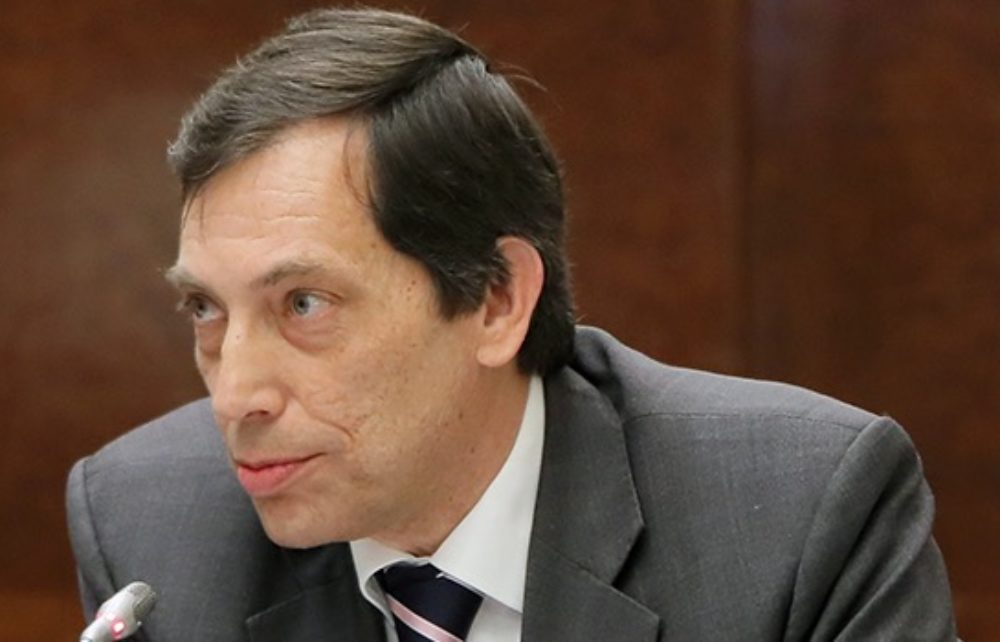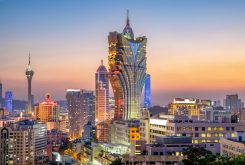Portugal and Portuguese-speaking countries should take more advantage of the Macau Forum to attract Chinese investment, namely in greenfield projects, according to the Deputy Secretary-General of the organization, Rodrigo Brum.
Deputy Secretary-General of the Forum since September 2017 in representation of the eight Portuguese-speaking countries, Brum will be replaced in September by ambassador Paulo Jorge do Espirito Santo, from Sao Tomé and Principe, according to a diplomatic source.
Speaking in Lisbon, during a Webinar on “Macau and the future of economic and trade relations between Portugal and China”, organized by the Portugal-China Chamber of Commerce and Industry, Brum said that it’s obvious that Portugal, like any other Portuguese speaking-country, “has every interest in having more Chinese investments”.
“The Macau Forum is an obvious bridge that can be explored for contacts with China, and it is no secret that Portugal would like to attract investments in the automotive or battery sector, and these contacts can be made through the Forum”, he said.
During the conference, Brum recalled that recently Forum Macau organized contacts with Chinese makers of electrical vehicles, including visits to facilities in the automotive sector that are much larger than Autoeuropa, a Volkswagen car factory located in the city of Palmela, near Lisbon, that is Portugal´s largest.
“The six highly technological industrial facilities we visited in China, with more than 95% of automated equipment through industrial robots, produced annually, each one, over 200 thousand cars”, he explained in the Webinar.
Brum also highlighted the potential of the Greater Bay Area’s eleven cities, nine in the Guangdong province and the Special Administrative Regions of Hong Kong and Macao, with a total population of nearly 67 million, “greater than the Tokyo Metropolitan Area – the world’s largest city cluster with a population of 44 million”.
The GBA also has a combined GDP of US$1.34 trillion representing 12% of China’s Gross Domestic Product, making this project “a huge opportunity”, he said.
The GBA consists of the special administrative regions of Hong Kong and Macao, as well as nine cities of the Pearl River Delta region (Guangzhou, Shenzhen, Zhuhai, Foshan, Jiangmen, Dongguan, Zhongshan, Huizhou and Zhaoqing).
The development of the GBA initiative is designed to strengthen infrastructure linkages among the cities involved and stimulate economic cooperation. A point in fact is that the existing GBA already possesses notable economic strength and is comparable to the other leading bay areas around the world.
“In the region where Macau is located, from our window we can see the GBA near us with is immense region and enormous potential. There are difficulties to overcome, even of understanding and relationship, but in some of these cases you may use Macau, not as a logistical platform, but as a facilitator and an intermediary namely through local banks, consultants and specialized organizations”, said Brum.
The Deputy Secretary-General of the Forum Macau, also said that there are countless business possibilities that require persistence and well planned business objectives “but the results are worth the effort”.
In the Webinar, Rodrigo Brum has also said that “it is a possibility to create new developing funds, to expand and support investments in the Portuguese speaking-countries and in its companies and entrepreneurs”.
The Macau Forum also have two other Deputy Secretary-General. One representing China and the other Macau. During the three years as a Deputy Secretary-General of the Forum Macau, Brum spearheaded efforts to have all the eight portuguese-speaking countries fully represented in the Macau Forum, with permanent delegates.



